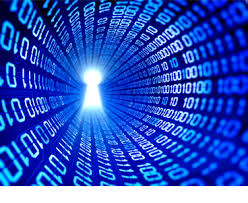Charles Duhigg And Creating Rewards That Are Actually Rewarding

Pop Quiz, how many rewards program are you a member of right now? If your answer is in the family of “ummm, I don’t know, a lot?” then according to New York Times Reporter and best-selling author Charles Duhigg, those rewards programs are failing both you and the companies that built them. PYMNTS caught up with Duhigg at IP2014 as he was coming off moderating the Breaking the Plastic Habit panel about how payments industry players, particularly those trying to lure consumers away from the use of plastic cards, need to think beyond traditional reward and loyalty programs to really capture users and merchants.
Twenty years ago a chemist at Procter and Gamble accidentally invented something amazing—a substance that erased smells. Realizing what a break-through they’d stumbled upon, the company invested a staggering amount and brought that substance to market as Febreze.
And no one bought it.
Why? Well according to Charles Duhigg, from whose best-selling book Habit this story comes, no one bought Febreze at first because P&G initially marketed it as a product that got rid of bad smells. They then learned something interesting about people—no one thinks their car/home/clothing smells bad. Since bad smells were not a problem most people believed they had, they didn’t think they needed Fabreze.
Though P&G considered shelving the product, instead they pushed through, added a perfume to it (no small feat given that the chemical eliminates smells) and re-pitched it to the American people as something that would make everything smell good. And today everyone keeps a bottle of it in their car or home, not because those places smell bad of course, but because they could smell nicer.
The obvious lesson, don’t imply your customers smell bad, is probably true no matter what business one is in. However, the Febreze problem applies to the payments industry uniquely, according to Duhigg.
PYMNTS caught up with the reporter and best-selling author of the book Habit after he moderated the Breaking the Plastic Habit Panel at IP 2014. Duhigg observed that payments players, particularly the segment of it that is trying to lure consumers away from paying with plastic, have a tough hill to climb ahead of them because most people don’t find using a credit card particularly problematic at the moment.
(Jump to 0.34) People are talking about providing this reward that we’re making it easier for you, you don’t have to pull a wallet out of your pocket or you don’t have to carry a wallet when it’s like ‘I don’t mind carrying a wallet,” right? Although I could be convinced to not carry a wallet the question I think becomes, is the reward that you’re providing genuinely rewarding. Febreze had to find a new reward and similarly it seems like this industry right now is trying to find the right rewards to incentivize the behavior change.
Duhigg went on to note that there are many ways to “reward,” a customer, and some of those methods are more effective than others. The most brute, least effective way, according to Duhigg is just to throw stuff—points, discounts, etc—since customers are so bombarded with these types of programs they tend to be forgettable. The most effective rewards are deeper he notes, and generally not designed as rewards at all.
(Jump to 1.38) There’s deeper rewards right? So think about the iPhone for instance when the iPhone first emerged. Blackberry was like a great device, right, it solved a lot of problems it did email, it did texts and yet somehow the iPhone provided some type of reward. I don’t think people still totally understand exactly what reward but some of it seems to be based in emotion and identity. People liked carrying the iPhone, it made them feel a certain way about themselves, it gave them something that equivalent technologies were not providing. “
As the iPhone’s dethroning of Blackberry demonstrates, even service isn’t enough—the product has to connect with the consumer in a way that the consumer finds using the product inherently rewarding. Sometimes that reward is incredibly subjective, Duhigg noted during the conversation that he dutifully carries his Delta rewards card because “getting upgraded to first class is like a huge deal in my life because I fly once a week.”
However, Duhigg also notes that there are broader observable facts about consumers and what they want, and that the payments industry seems particularly keyed into discovering how to address those desires beyond just rolling out the newest tech.
(Jump to 4.03) Sometimes when I come to technology its like everyone’s drunk the kool-aide right? (The attitude is) all we have to do is come up with this awesome new…dongle and everyone’s gonna use it. So I think everyone in this industry understands very clearly that that’s not true right. The problems to be solved are not problems where you simply need to find the right screwdriver and all of a sudden everything falls into place. They’re very complex problems that have to do with the psychology of consumers, the psychology of vendors, the channel issues, the network distribution issues. There seems to be a large acknowledgement that all the problems have not been solved yet and there are questions still emerging.
PYMNTs own Karen Webster has been thinking about the questions around rewards and reaching consumer’s where they live lately. Check out her commentaries So, You Want To Do a Loyalty Program, Why? and Wal-Mart Banks On Cash .
Listen to the full podcast by clicking below.
*If you have trouble with the audio player above, click here.

